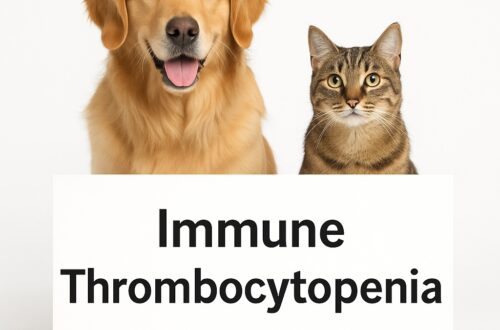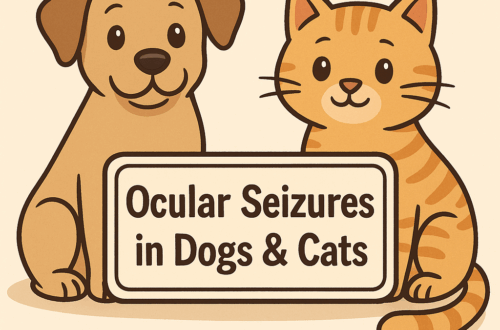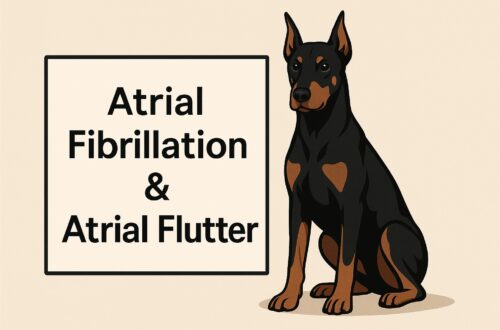I’m writing this blog as I travel to Frankfurt, Germany to speak with colleagues at the Congress of the European College of Veterinary Internal Medicine about marketing veterinary specialty medicine. I was concerned about the timing of my voyage, as I was not confident I would be able to publish my weekly post on time. And anyone who knows me appreciates that I’m a stickler for punctuality, consistency and attention to details. But I should’ve known I would have time to contemplate and compose given I was traveling through Chicago’s O’Hare International Airport, a proverbial hotbed on flight delays in the USA.
A colleague recently asked me what my pet peeves of clinical practice were. I think it’s quite fair to say each of us gets annoyed with various minor issues and incidences during our workdays; the profession of veterinary specialty medicine is certainly no exception to this. After being asked this probing question, I thought it could be helpful for pet parents to know some things they should and shouldn’t do (some commandments if you will) in preparation for and during a consultation with board-certified veterinary specialists.
Pet Peeve #1: Tardiness
Commandment #1: Thou shalt arrive on time…
A board-certified veterinary specialist’s schedule is typically booked several days, if not weeks, in advance. We schedule relatively long appointments with families; my initial consultations have always been scheduled for sixty minutes, a period substantially longer than primary care visits. Let’s face it – we have a lot about which to speak! Most veterinary specialists are also highly efficient; this means our schedules can absorb a mild degree of tardiness from families. But there is also a limit to how much we can bend before we break. I will allow a family to be up to 20 minutes late for their 60-minute consultation. If they are more than 20 minutes late, they have two options: reschedule (and arrive on time) or wait until I’m available later that same day. I will not delay or compromise in any way another pet’s consultation because of another’s family’s tardiness.
Pet Peeve #2: Not knowing your pet’s drugs
Commandment #2: Thou shalt know your pet’s medications…
Most of the patients I evaluate come to see me having already been prescribed medications by their family veterinarian, typically quite a few of them. Despite this fact, I am perpetually amazed at how little pet parents know about their fur baby’s drugs. It is with rare exception that my staff and I don’t hear one of the following statements during every consultation – Every. Single. One.
- “I don’t know the name of the drug but I give it once a day.”
- “She takes [insert drug name here] but I don’t know what size the tablets are.”
- “He gets the little white pill three times a day.”
- “That information should be in the medical record.”
- “I don’t know why he takes this one, and I haven’t really noticed an improvement with it.”
While it is true a veterinary specialist’s team requests family veterinarians send a copy of your pet’s medical records, they do not always receive them prior to a pet’s consultation. When they do receive them, often the details of the medical records are sorely lacking, providing little useful information about a pet’s medications. Thus telling the nurses or the veterinary specialist “that information should be in the medical record” really doesn’t help – not at all!
If a medical doctor prescribes a person a medication, I hope that individual knows for what reason s/he is taking it. I hope s/he knows the tablet strength and how often to take it. Board-certified veterinary specialists have the same expectations of pet parents for their animals. Families should know why their pet has been prescribed a medication. They should know the strength of the drug and how often is it supposed to be administered. They should be informed of all major side effects. Both primary care veterinarians and board-certified veterinary specialists have a responsibility to educate pet parents. If pet parents don’t know this information, I also firmly believe it is their responsibility to be pro-active and learn the answers to these questions – that is, to be the best informed pet parents possible.
Pet Peeve #3: Having no medical record to review
Commandment #3: Thou shalt bring a copy of all of your pet’s medical records…
As mentioned above, veterinary specialty teams always request a copy of a pet’s medical records, including diagnostic images like radiographs/x-rays, once a referral has been received; indeed this request is often made multiple times. Specialists absolutely like and find it uniquely beneficial to review medical charts before consultations.
Although specialty teams make record requests to be helpful, pet parents should know it is their responsibility (and that of their family veterinarian) to ensure a veterinary specialist receives their animal’s complete medical file in a timely fashion.
Some human specialists actually cancel consultations if they are not provided with appropriate medical records by the patient and/or referring doctor. Without a timely receipt of a pet’s medical file, the consultation with a board-certified veterinary specialist will not be efficient and will likely be quite frustrating for all involved.
Pet Peeve #4: Talking “smack” about your veterinarian
Commandment #4: Thou shalt not speak poorly of your family veterinarian…
As I’ve mentioned in previous posts, some parents who come to consultations with board-certified veterinary specialists are frustrated with their primary care doctors. Yes, sometimes this frustration is justified. More often than not, there has been some breakdown in communication that has led to unfortunate perceptions and misperceptions by families about the care provided by their family veterinarians. Frequently and unfortunately pet parents vent their frustrations to veterinary specialists during consultations. We hear a wide variety of comments that can essentially be characterized as families trying to throw their family veterinarians under the proverbial bus.
Pet parents, please realize this: such negative comments about your family veterinarian are not helpful. Rather they are distracting because they put veterinary specialists in very uncomfortable positions (remember these doctors are our respected colleagues), and the negativity contributes absolutely nothing productive to your pet’s healthcare. So if you are a pet parent who is frustrated with your primary care doctor, I challenge you to do two things:
- Express your concerns in a professional manner to your family veterinarian
- Try to approach your frustration differently and recognize your family veterinarian referred your pet to a board-certified veterinary specialist so your pet could receive the best possible care.
Be thankful your pet’s primary care veterinarian was willing to ask for help and was willing to partner with a veterinary specialist to help your fur baby!
Pet Peeve #5: Being a mean person
Commandment #5: Thou shalt be a decent human being…
I hope this last commandment seems like common sense to most people. In reality, however, many adults seem to have the social skills of a 2-year old (and I’m talking about a “terrible twos” 2-year old) – yelling, kicking and screaming, cursing – full-blown adult temper tantrums. I can’t make up some of the stories I could tell, and I know many colleagues, both in primary care and veterinary specialty medicine, have similar tales. A veterinary specialty hospital is a professional medical office with staff members dedicated to working with you and your family veterinarian for the benefit of your pet. It has never been, is not, and never will be a place for adolescent behavior, for shouting at client services representatives, for verbally assaulting veterinary nurses, or for threatening physical violence against anyone.
The take-away message…
Board-certified veterinary specialists are here and ready to partner with you and your family veterinarian to help ensure your pet receives the best possible healthcare. By following the commandments above, pet parents can help safeguard an efficient and productive consultation with a veterinary specialist.
To find a board-certified veterinary internal medicine specialist, please visit the American College of Veterinary Internal Medicine.
To find a board-certified emergency and critical care specialist, please visit the American College of Veterinary Emergency and Critical Care.
Wishing you wet-nosed kisses,
cgb




